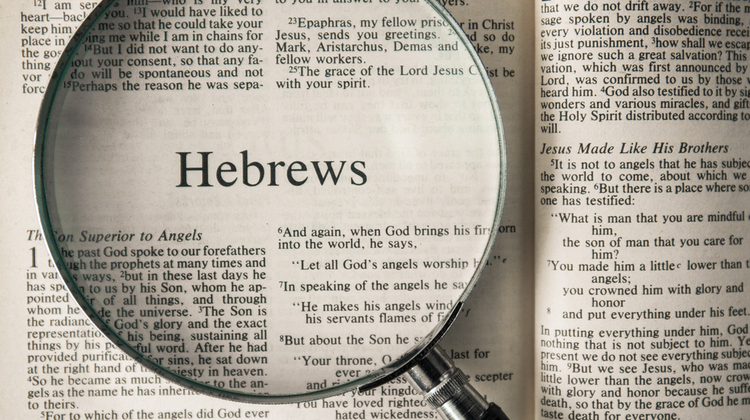This evening, Fr. Gabriel will be leading us through Hebrews 3-4. The overriding theme of this passage is the superiority of Christ to Moses. We will find this same theme running through both the Gospels of Matthew and John.
The early chapters of Matthew’s gospel present Jesus as the fulfillment of Moses from the slaughter of the innocents at his birth, the coming out of Egypt, the parting of the Red Sea/Jordan, the trials in the desert, culminating in the ascent on the mountain to receive the Law. And it is in the Sermon on the Mount in Matthew 5 that this gospel specifically speaks of the superiority of Jesus. It is here that Jesus’ teachings surpass those of the Mosaic law with the refrain “You have heard it said ____, but I say _____.” For example, Jesus says “You have heard said ‘You shall not kill’ but I say ‘You shall not be angry.’” “You have it heard it said ‘You shall not commit adultery’, but I say ‘You shall not look at a woman lustfully.’” “You heard it said ‘You shall not swear falsely’ but I say, ‘You shall not swear at all.’” “You have heard it said ‘An eye for an eye’ but I say ‘Turn the other cheek.’” If you are familiar with Matthew’s Gospel think about the ways Matthew presents Jesus’ superiority to Moses.
John’s Gospel carries this theme of the superiority of Christ even further with the “I am” statement. John sets up this theme in his prologue by saying that “For the law was given through Moses; grace and truth came through Jesus Christ.” John 1:17. In other words, grace and truth are not found in Mosaic law. Although entire books have been written about John’s use of Moses, the understanding of the superiority of Jesus comes out most forcefully in reference to manna, the water from the rock, and the guiding pillar of fire. In John 6 is the feeding of the Five Thousand. It is here that Jesus says “I am the bread of life. Your fathers ate the manna in the wilderness, and they died. . . I am the living bread, if anyone eats of this bread he will live forever.” John 6:48-51. Moses leads to death, Jesus leads to life.
John 7-8 relates Jesus’ attendance at the celebration of the Feast of Tabernacles or Booths. This feast commemorates the Israelites’ wanderings in the desert. One of the rituals associated with the feast was the carrying of water from the Pool of Siloam to the Temple to commemorate the Israelites receiving the water from the rock in the desert. It is here that Jesus says “If anyone thirst, let him come to me and drink . . as the scripture has said ‘out of his heart shall flow rivers of living water’” John 7:37-38. Another ritual associated with the feast was the lighting of lamps in the Temple to commemorate the pillar of fire which the Israelites through the desert. In response to this ritual, Jesus says “I am the light of the world, and he who follows me will not walk in darkness but will have the light of life.” John 8:12. As we read through Hebrews this evening, keep in mind these other accounts of how Christ surpasses Moses.
Dinner is at 6. The menu is meatball stroganoff. Discussion about 6:45. Hope to see you here.
Since we have such a hope, we are very bold, not like Moses, who put a veil over his face so that the Israelites might not see the end of the fading splendor. But their minds were hardened; for to this day, when they read the old covenant, that same veil remains unlifted, because only through Christ is it taken away. Yes, to this day whenever Moses is read a veil lies over their minds; but when a man turns to the Lord the veil is removed.
2 Corinthians 3:12-15

